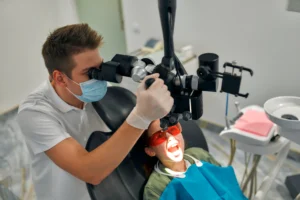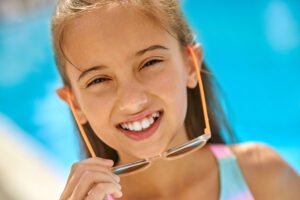As parents, we’re constantly seeking the best for our children’s health, and oral hygiene is no exception. A common question we receive at Little Smiles of Beverly Hills is about the right time to introduce an electric toothbrush for children, and whether it’s truly better than a manual one. We believe in a “whole-child approach” to dental care, ensuring your child develops positive lifelong habits from the start.
Manual vs. Electric: What’s Best for Your Child’s Tooth Care?
The truth is, both manual and electric toothbrushes can be highly effective in maintaining your child’s oral health. The key lies in proper technique and consistent brushing.
Our philosophy at Little Smiles of Beverly Hills, aligned with Dr. Sepehr Nassiripour’s approach, emphasizes making dental care a positive experience. Therefore, the decision between a manual and an electric toothbrush for children often comes down to your child’s preference and comfort. Some children, particularly those with sensory sensitivities, might find the vibrations of an electric toothbrush overwhelming.
The Benefits of an Electric Toothbrush for Children
While a manual toothbrush skillfully wielded can do wonders, electric toothbrushes offer several features that can make brushing more engaging and effective for children:
- Built-in Timers:┬ĀMany electric toothbrushes include two-minute timers, often with quadrant guides (30 seconds per section), which help ensure your child brushes for the recommended duration. This can take the guesswork out of brushing time and make it a fun challenge.
- Fun Designs and Characters:┬ĀElectric toothbrushes frequently come in kid-friendly designs with popular characters, turning a routine chore into an exciting activity.
- Ease of Use for Developing Motor Skills:┬ĀFor children who are still developing their fine motor skills, an electric toothbrush can make it easier to achieve a thorough clean, as the toothbrush head does most of the work. Parents simply need to guide the toothbrush over each tooth surface without the back-and-forth scrubbing motion required with a manual toothbrush.
- Increased Motivation:┬ĀThe novelty and features of an electric toothbrush can often motivate children to brush more consistently and with greater enthusiasm for their tooth care.
When to Consider an Electric Toothbrush for Your Child
There isn’t a strict age rule for introducing an electric toothbrush. Instead, consider these factors:
- Child’s Interest and Comfort:┬ĀIf your child shows interest in an electric toothbrush or seems more engaged with the idea of using one, it might be a good time to try. Conversely, if they show resistance or discomfort, it’s perfectly fine to stick with a manual toothbrush.
- Brushing Effectiveness:┬ĀIf you notice that your child is struggling to clean their teeth effectively with a manual toothbrush, an electric toothbrush could provide a more thorough clean with less effort for each tooth.
- Sensory Considerations:┬ĀAs mentioned, be mindful of any sensory sensitivities your child might have. Some children might dislike the vibrations, while others might find them stimulating and fun.
- Parental Guidance:┬ĀRegardless of the toothbrush type, parental supervision and assistance are crucial, especially for younger children, to ensure all surfaces of each tooth are being cleaned properly.
Important Considerations for Any Toothbrush
Whether you choose a manual or an electric toothbrush, always prioritize these key aspects for optimal tooth health:
- Soft Bristles:┬ĀAlways use a toothbrush with soft bristles to protect your child’s delicate gums and tooth enamel.
- Appropriate Size:┬ĀEnsure the toothbrush head is appropriately sized for your child’s mouth, allowing it to reach all teeth comfortably.
- Consistent Brushing:┬ĀThe most important factor for good tooth hygiene is consistent brushing twice a day for two minutes.
Toothbrush Comparison for Kids
| Feature/Type | Manual Toothbrush | Electric Toothbrush |
| Cost | Generally lower upfront cost | Higher upfront cost, ongoing cost for replacement heads |
| Technique | Requires more precise manual dexterity and technique | Toothbrush head does most of the work; requires guiding rather than scrubbing |
| Features | Basic cleaning | Timers, pressure sensors, fun designs, app connectivity (on some models) |
| Motivation | Can be less engaging for some children | Often more engaging due to novelty, sounds, and interactive features |
| Effectiveness | Highly effective with proper technique | Can be highly effective, especially for children developing motor skills |
| Sensory Impact | Minimal | Vibrations and sounds may be a factor for children with sensory sensitivities |
Age-Appropriate Dental Care Considerations for Your Child’s Teeth
| Age Group | Key Dental Care Aspects |
| Babies | Begin cleaning gums with a soft cloth even before teeth emerge. Once the first tooth appears, start brushing twice daily with a tiny smear of fluoride toothpaste (rice-grain size). Focus on making it a positive experience and establishing a routine for each tiny tooth. |
| Toddlers | Continue brushing twice daily with a pea-sized amount of fluoride toothpaste. Encourage independence, but provide significant assistance and supervision to ensure thorough cleaning. Introduce the concept of “brushing all your teeth” and make it fun with songs or stories, focusing on every single tooth. |
| Preschoolers | Encourage more independence while still supervising and assisting with brushing. They can start using an electric toothbrush for children if they show interest and comfort. Reinforce the two-minute brushing rule and discuss the importance of healthy eating habits for strong teeth. |
| School-Aged Children | Children in this age group can typically brush more independently, but continued supervision is recommended. They are often good candidates for an electric toothbrush for children as it can help ensure a comprehensive clean of all their teeth. Focus on flossing and understanding the link between diet and oral health for each tooth. |
| Pre-Teens | By this age, children should be brushing and flossing independently. Regular dental check-ups and discussions about maintaining good oral hygiene are crucial, especially as permanent teeth emerge and orthodontic needs may arise. Reinforce the importance of consistent habits for lifelong healthy teeth. |
FAQs About Electric Toothbrushes for Kids
Electric toothbrushes often come with features like timers and fun designs that can motivate kids to brush longer and more thoroughly. They can also be easier for children who are still developing fine motor skills, helping them clean each tooth effectively.
There isn’t a strict age. The best time depends on your child’s interest, comfort level, and developing motor skills. If they show interest or struggle with a manual toothbrush, it might be a good time to try an electric toothbrush.
Both can be effective. The key is proper technique and consistent brushing. An electric toothbrush can make it easier to achieve a thorough clean, but a manual toothbrush used correctly is equally beneficial for a child’s tooth care.
Always choose an electric toothbrush with soft bristles to protect your child’s delicate gums and tooth enamel.
Just like with a manual toothbrush, your child should brush for two minutes, twice a day. Many electric toothbrushes have built-in timers to help with this.
It depends on the child. Some children with sensory issues may find the vibrations and sounds of an electric toothbrush overwhelming. It’s best to observe their reaction and prioritize their comfort with the toothbrush.
Yes, parental supervision is crucial, especially for younger children, to ensure they are reaching all tooth surfaces and using the toothbrush correctly.
Don’t force it. If your child shows resistance or discomfort, it’s perfectly fine to continue using a manual toothbrush. The most important thing for their tooth health is that they brush consistently and effectively.
You can explore our website at littlesmilesofbeverlyhills.com for more resources and to learn about our comprehensive “whole-child approach” to pediatric dental care.
It’s generally recommended that children visit the dentist every six months for routine check-ups and cleanings, starting with their first tooth or by their first birthday.
Your Trusted Dentist in Beverly Hills for Children’s Dentistry
At Little Smiles of Beverly Hills, our experienced dentists are dedicated to providing the highest quality dental care for your children. We specialize in pediatric dentistry and understand the unique needs of young patients. From their very first tooth to the transition to permanent teeth, our dentists at Little Smiles of Beverly Hills are here to guide you and your child through every stage of their dental development. Trust our dentists to make every visit a positive experience, fostering a lifetime of healthy teeth and a happy smile. Our commitment to excellence in dentistry makes us a trusted choice for families in Beverly Hills.
Nurturing Healthy Smiles: A Final Thought for Your Child’s Oral Health
Ultimately, the choice of an electric toothbrush or a manual one for your child comes down to what works best for your family. The most important thing is to establish consistent, effective brushing habits twice a day for good tooth hygiene. At Little Smiles of Beverly Hills, we are committed to supporting you in nurturing your child’s oral health journey with our compassionate and comprehensive dental care.
For more information on our pediatric dental services, visit our Services page. If you have further questions or would like to schedule an appointment with our dedicated dentists, please don’t hesitate to Contact Us. You can also learn more about our philosophy and team on our About Us page. We look forward to welcoming you and your children to our dental family!



